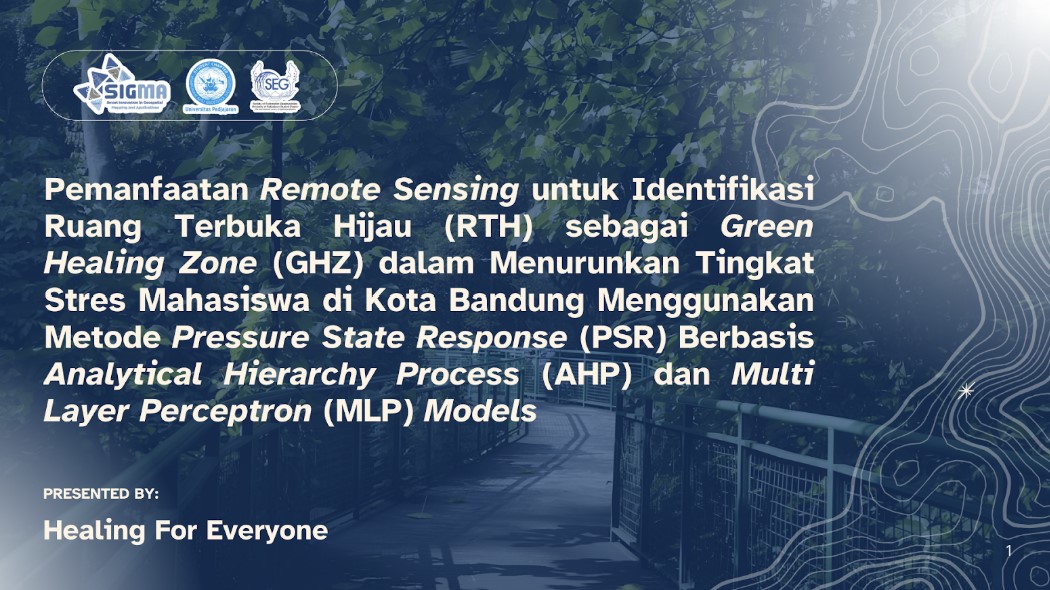Commemorating a Decade of Civil Engineering Education, ITB Held National Seminar in Strengthening Indonesian Infrastructures
By Adi Permana
Editor Adi Permana

BANDUNG, itb.ac.id - Civil Engineering Student Association (HMS) Bandung Institute of Technology (ITB) held ITB Civil Engineering Expo (ICEE) 2020 on Sunday (2/2/2020) at the West Hall of ITB. It was held in existential commemoration of Civil Engineering Education at ITB for a decade. This year, ICEE 2020 has a big theme named "Optimization of Indonesia’s Transportation System in 2020: 100 Years of Civil Engineering Education in Indonesia". The event consisted of a Student Conference and Expo which was held on February 1, 2020 and a national seminar held on February 2, 2020. In addition, there was also a competition for students namely the Tender and Paper Competition.
The national seminar was one of the agenda in ICEE 2020. Imam Haryono, Ph.D., an Expert Staff on Business and Investment Climate, Ministry of Industry (Kemenperin) Republic of Indonesia was invited as a speaker. In accordance with the theme of the seminar, "Efforts to Strengthen Indonesia's Logistics Transportation Through Infrastructure Planning and Development Towards the World’s Top Five Economies in 2045", Imam explained facts and strategies of the government, especially in industry, to support Indonesia's economic development to reach its goal.
Imam explained, currently Indonesia's economic growth is stagnant at around 5 percent per year. Five industries with the highest growth value in the 3rd quarter of 2019 are the textile industry, the food and beverage industry, furniture, paper, and other manufacturing industries (repair and installation of machinery services). "Right now, the value of investment in the industry from 2015 to 2019 continues to increase. The biggest investment is in the food industry and the metal and metal goods industry, "Imam said.
To improve competitiveness, he stated that the Ministry of Industry already initiated a program called Making of Indonesia 4.0. It aims to increase Indonesia’s productivity and its competitiveness in the era of Industrial Revolution 4.0. Targets to be achieved are to return 10 percent of net export’s contribution to GDP (Gross Domestic Product), double the productivity of industries, and increase the research and development (RnD) budget by 2 percent of GDP. "Those targets can make Indonesia’s position as top 10 biggest economy in the world by 2030," he said.
Imam said, at least five industrial sectors as a focus in Making Indonesia 4.0 are food and beverage, textile, automotive, chemical, and electronics. "To focus on related industries, we have released some quick wins. Those are intensive research and development, roadshow investors, improvement of vocational education’s quality, and government support to MSMEs (UMKM)," he explained.
Imam said that infrastructure is one of the key factors of Indonesia's competitiveness and as a driving force of national economy. One thing that must be constructed is road connectivity in Indonesia because it support logistics transportation. Right now, he explained, 90 percent of logistics transportation modes are carried out by land. The government is developing the sea as a mode of logistics transportation by the construction of sea tolls.

By commemorating Civil Engineering Education in Indonesia for a decade, Imam hopes that civil engineers will participate on developing infrastructure in Indonesia, especially for answering national logistics problems. In addition, it is needed the ability to manage logistics infrastructure by using the latest technology that is integrated, effective, and efficient. "Institutions and related ministries must also encourage in this sector, especially the supply of qualified human resources and regulations that are useful for building industrial ecosystems to become World’s Top Five Economies in 2045,” he said.
Translator: Billy Akbar Prabowo

.jpg)
.png)
.jpg)
.jpg)
.jpg)


